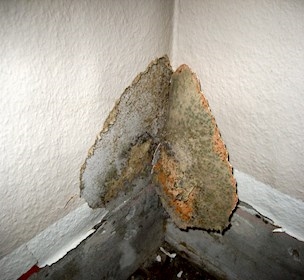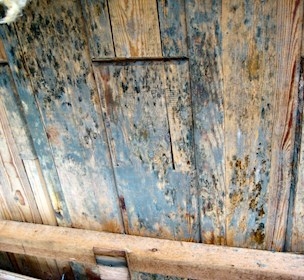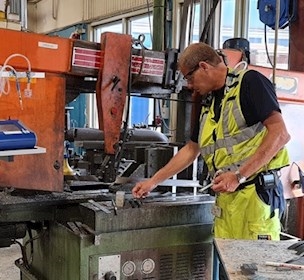Improving indoor climates with building surveys and constructional expertise
A healthful indoor climate is essential for our well-being and health. Building surveys can reveal any damage that could negatively affect a building's indoor climate and should be repaired.
What does a good indoor climate mean to us?
A healthful, properly functioning indoor climate is essential to our well-being when we spend long periods indoors. This is true both at home and at work.
A poor indoor climate can cause discomfort in such forms as irritated mucous membranes, itchy eyes, fatigue, and unpleasant odours, and it can lead to chronic illnesses.
Specialised building surveys and constructional expertise make it possible to identify and solve problems related to a building's indoor climate, such as mould management
issues.
Building surveys identify mould and other potential indoor climate problems
Mould growth in homes is more than just an aesthetic problem – it can also have serious health implications. This makes it important to identify the causes of mould growth
and other indoor climate issues, such as building envelope failures and leaking pipes.
Hidden damage, such as a leak in water or heating systems, can develop and create a breeding ground for mould and wood decay fungi. If mould growth is hidden behind wallpaper or in the floor structure, it can be difficult to detect.
In any case, it is important to quickly find the cause of a fungal infestation before it becomes a costly issue for the home or property owner. For this reason, having a building survey done on a house or property can be a good investment.
What can you do to improve your indoor climate?
It is worth noting that mould is not always the culprit when it comes to health problems and a poor indoor climate. There could also be volatile organic compounds, also known as VOCs, off-gassing from new furniture, toys, paint, floor varnish, and other sources.
In addition to construction-related causes, mould growth can also be caused by inappropriate building use, such as insufficient ventilation or inadequate cleaning.
Regular building maintenance is also important to avoid structural damage. This both extends the lifetime of the building and improves the indoor climate.
Related content

Structural engineering for buildings and indoor climate
/Service
Extend the lifespan of buildings and get an optimal indoor climate with structural engineering

Structural survey laboratory
/Facility
Find out if there is mold, wood-decomposing fungi and insects or asbestos in your building

Air quality in working environments and inside air
/Service
Document whether the quality of air in indoor and working environments is within set limits.

